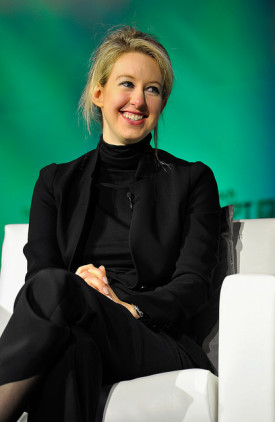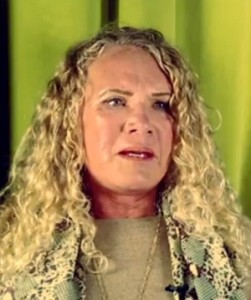By Jackie Faye May 6, 2015
Forbes magazine has been putting together a list that tracks the wealthiest individuals on the planet for 29 years running, and it is no easy task. More than 100 people worked on the annual List of the World’s Richest People project this year, when a record 1,826 billionaires were tallied. Their combined net worth of $7.05 trillion was up from $6.4 trillion the year before.

Bill Gates in 1985. ©Niall Kennedy
The ranking tells dozens of individual stories about wealth in the world: who’s on top, who’s up and coming, how wealth accumulation is changing. A sampling:
Apart from these success stories, the list also takes the temperature of global business. The industry with the most billionaire newcomers is not, perhaps surprisingly, technology, but food and beverage. But Silicon Valley did bring younger faces to the fold. In terms of geography, Russia lost the most ground as measured by the decline in the number of billionaires hailing from Putin country versus the previous year.

Elizabeth Holmes, Founder, CEO and Chairman of blood-testing firm Theranos. ©TechCrunch
To gain a deeper understanding of how the Billionaires issue gets made, I spoke with Forbes’ Deputy Editor of Wealth Keren Blankfeld. Blankfeld is also responsible for the Forbes 400 List. Apart from covering wealth, she covers art and has even argued with Donald Trump about his brand value. She is a graduate of Columbia University Graduate School of Journalism.
Jackie Faye: You all have been coming up with this list for the past 29 years. Is there anyone who has been on the list every year?
Keren Blankfeld: Not every year. Bill Gates has been on the list the most – he has been on for 16 out of the past 21 years.
Faye: What has changed over the years as far as the methods you use to collect this information? I imagine because of the Internet following the money has become easier.
Blankfeld: It is a little bit easier, but it is also harder because so many more people are on the list, and it just grows exponentially year after year. The Internet definitely helps with the research, but there is also a lot more to research.
Faye: How do you track the fortunes of billionaires in countries where this kind of data is far less transparent? For instance, how do you go about getting numbers on people like Jack Ma of China’s Alibaba, or billionaires in places like Russia or the Middle East? How do you verify any information they give you?

Jack Ma, Founder and Executive Chairman of China’s Alibaba Group, with British businessman Sir Martin Sorrell, chief executive of WPP, at GREAT Festival of Creativity. ©UKTI
Blankfeld: We have reporters in all these places and we try to contact everyone who is on the list, so it is not a surprise to anyone that their name is on there. Some people collaborate, other people don’t. But yes, in places like Russia and Venezuela it is not easy, but we use whatever resources we can. We talk to analysts, we talk to family members, we talk to people who are familiar with the financials inside the business, lawyers, whoever we can get access to – and then we always try to confirm the number with the billionaire.
Faye: Has there been a real success story that sticks out in your mind? Because it seems as though so many of these billionaires are on the list year after year, that the rich are only getting richer?
Blankfeld: I think there are a lot of new people on the list, especially in the tech sector. This year we added the Uber founders and Elizabeth Holmes, who runs the blood-testing firm Theranos, she is also the youngest self-made woman. She is 31 years old—that is a huge success story. So while there are the same names that you have been seeing again and again, and there are also people who inherit the wealth, the vast majority on the list is self-made.
Faye: This year a record of 46 individuals on the list were under the age of 40, why do you think that is? Is that the Zuckerberg Effect?
Blankfeld: Yes, I think technology has created a lot of billionaires. It creates a lot of wealth.

Christy Walton, the widow of John T. Walton, one of the sons of Sam Walton, the founder of Walmart. ©Aneo
Faye: You mentioned Elizabeth Holmes, but there are still fewer women on the list, has the gender gap improved over the past three decades?
Blankfeld: As a woman, unfortunately, I’ve noticed that many of the women you see are the ones who have inherited the money. You see Christy Walton on the top ten and she has been on for a while, but that is inherited wealth. As far as self-made wealth we are starting to see more – Elizabeth Holmes is a great story, but women are still lagging behind. I think that is representative of what you see in business in general.
Faye: Can you walk me through a reporter’s assignment when tracking the wealth of an individual? Where do they begin?
Blankfeld: We have been doing this list for so long and we have a lot of historical information that we use, but we assign reporters billionaire files. Each reporter has a certain amount of names. We track them throughout the year and they try to find out as much information as possible, especially if the billionaire has been on the list for the past few years. Each reporter looks at the major things that happened in the person’s life in terms of business and personally, and we track any major movements in the wealth. The issue is like a snapshot in time and really looks at what has changed over the past year.
Faye: You claim some billionaires do not cooperate when you try to check the numbers. Anyone you want to call out?
Blankfeld: There are quite a few who don’t want to be on the list especially in countries where there are security issues. Some of them would just rather not be called into attention, but not one person I want to draw even more unwanted attention to.

Evan Spiegel, co-founder of SnapChat. ©JD Lasica
Faye: Do you consider these numbers as floors, given that the wealthy can hide their money in shell companies or offshore accounts? Do you think these numbers are a lot higher than what you are estimating?
Blankfeld: We are definitely conservative; we always want to be able to back up the numbers that we print. There are many cases where we are not able to prove the numbers, so they are probably higher.
Faye: Is there anyone you know that is missing from the list, but his or her wealth is just simply to hard to track?
Blankfeld: I think there are probably a few people in that category, but we are not giving up on trying to get that information.
Faye: What purpose do you hope this list serves to readers?
Blankfeld: Every year it changes, and although there are the same names sometimes, you see how different countries are fairing through this list – it is a snapshot of the economy in terms of what is happening in world business and in politics. And I imagine it will keep growing.
*****
Jackie Faye will graduate from Columbia University with a MA in business journalism in 2015. Previously, she reported in Norfolk, VA at Newschannel 3 (CBS), Raleigh, NC, at NBC-17, Columbia, SC at WIS (NBC), and Oklahoma City, OK. She has a decade of experience in journalism. Media General honored her coverage of drug shortages in 2012. After her report aired, a federal class action lawsuit was filed on behalf of cancer patients who could not access lifesaving chemotherapy drugs. She is a graduate of Georgetown University’s Institute of Political Journalism.
This entry was posted on Wednesday, May 6th, 2015 at 12:09 pm. It is filed under Behind the Story, Featured and tagged with Bill Gates, Christy Walton, Elizabeth Holmes, Forbes magazine, List of the World’s Richest People. You can follow any responses to this entry through the RSS 2.0 feed.
Comments are closed.
